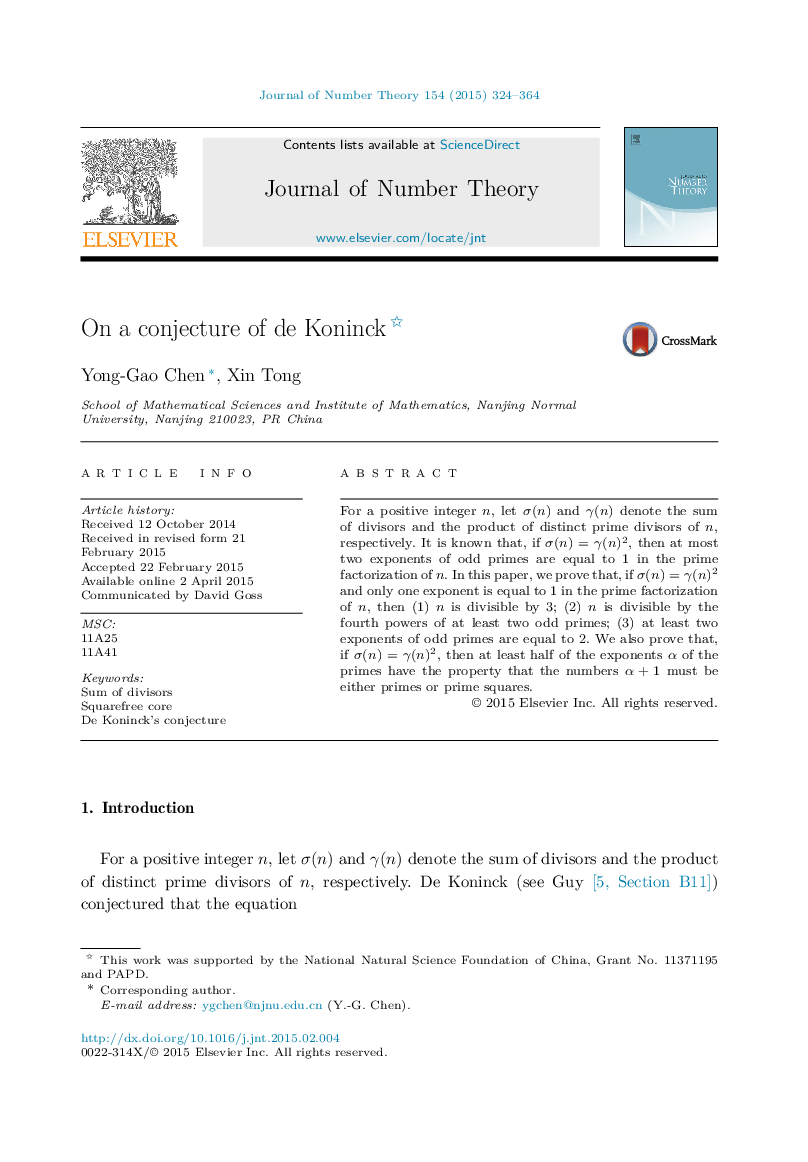| Article ID | Journal | Published Year | Pages | File Type |
|---|---|---|---|---|
| 4593616 | Journal of Number Theory | 2015 | 41 Pages |
Abstract
For a positive integer n , let σ(n)σ(n) and γ(n)γ(n) denote the sum of divisors and the product of distinct prime divisors of n , respectively. It is known that, if σ(n)=γ(n)2σ(n)=γ(n)2, then at most two exponents of odd primes are equal to 1 in the prime factorization of n . In this paper, we prove that, if σ(n)=γ(n)2σ(n)=γ(n)2 and only one exponent is equal to 1 in the prime factorization of n, then (1) n is divisible by 3; (2) n is divisible by the fourth powers of at least two odd primes; (3) at least two exponents of odd primes are equal to 2. We also prove that, if σ(n)=γ(n)2σ(n)=γ(n)2, then at least half of the exponents α of the primes have the property that the numbers α+1α+1 must be either primes or prime squares.
Keywords
Related Topics
Physical Sciences and Engineering
Mathematics
Algebra and Number Theory
Authors
Yong-Gao Chen, Xin Tong,
